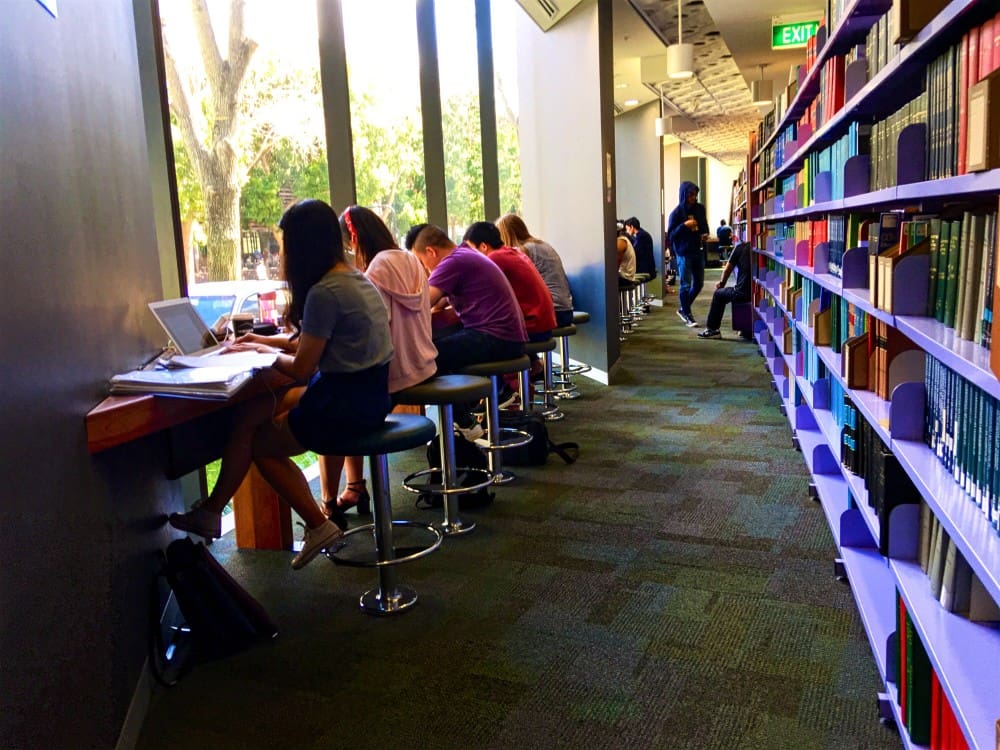The Weird Connection Between Libraries and HR
April 17, 2019 by Josh Hrala
Have you been to a public library recently? If not, what do you remember about your last trip?
For most of us, libraries used to be places that housed – primarily – books. It’s where you went to to do research that you couldn’t perform online and things like that. Sure, the library houses other things, too, like maps, records, movies, etc. But, all in all, a library was a book depository.
Well, if you head to your local library today – which you should – you’ll find that books aren’t the sole focus of libraries anymore. Instead, there are tons of community activities and social programs (like helping the homeless improve their situation or helping immigrants find jobs and obtain citizenship). They even have classes and events, such as yoga, arts programs, and much more.
Libraries, in essence, have transformed from book rental stations to community centers, offering a large swath of various activities that strengthen the community that surrounds them. And, at the helm of all of this, are the librarians.
In short, libraries have become ‘third places,’ which we’ll dive into more in just a bit. And the importance of these third places cannot be overstated.
“A reason public libraries are seen as such important third-place institutions is that they and their librarians have gradually taken on other functions well beyond lending out books. In many communities, librarians are also ad hoc social workers and navigators,” writes Marcela Cabello and Stuart M. Butler for the Brookings Institute.
“They help local people figure out the complexities of life, from navigating the health system to helping those with housing needs. This “go-to” role has influenced library programming and events, with libraries providing advice and connections to health, housing, literacy, and other areas.”
As you can see, libraries are almost completely different places than they were 50 years ago. Back then, some thought of the library as a quiet, yet policed place. Where any noise would earn a stern shushing from a librarian. They were dusty and stale. While those were misconceptions even back then, the library’s reputation has done an about-face recently (well, over the last two decades or so) changing to a thriving community and engagement center.
And you know what else has undergone the same change: the human resources department.
Libraries and HR: A Weird, But Strong Connection
Yes, you heard that right: HR and your public library have a ton in common.
In the past, HR was viewed sort of in the same light as a library. The department was really only known for one function: policy creation and enforcement, which led to HR having a poor reputation with workers and in pop culture.
Consider this: when someone in the general public today thinks about HR, what comes to their mind? Is it that that HR is filled with corporate henchmen that enforce rules to the letter and often fire/discipline undeserving workers? Maybe (pop culture certainly hasn’t helped this notion), but that’s changing more and more with each passing year because HR has started to become its own ‘third place’ in the same vein that libraries are (except that HR is, obviously, still a workplace function).
For example, right now, one of the biggest issues facing HR is how to foster engagement and inclusion. In short, HR is trying to make workplaces not only productive and regulated (because, let’s face it, policies do need to be enforced, especially ones that cover harassment and misconduct), but also fun and inviting. HR wants to build a community.
Just like libraries offer a place for all to gather, learn, and better themselves, HR does the same thing nowadays inside companies. You can even see this in how we brand HR in today’s world. Many startups, for example, call HR the ‘People Department’ and CHROs often go by other titles like ‘Head of People.’
This re-branding isn’t just to get away from the negative associations of HR from a bygone era, it’s also because HR is literally performing different tasks now that focus on more than hiring, firing, and maintaining the employee handbook.
HR Is a Community Center Onto Itself
Just like modern librarians, HR leaders are now community leaders that are required to have a multitude of skills to perform their jobs well.
This is because HR is trying to make work feel more like a ‘third place.’ If you are unfamiliar with that term, Stuart M. Butler and Carmen Diaz, also from the Brookings Institute, sum it up elegantly as:
“Third places is a term coined by sociologist Ray Oldenburg and refers to places where people spend time between home (‘first’ place) and work (‘second’ place). They are locations where we exchange ideas, have a good time, and build relationships.”
In today’s world, they argue, third places are mainly virtual (think: Facebook and other social media platforms). However, libraries are prime examples of third places because they are a place in between work and home where community thrives.
HR leaders, therefore, want to take this idea – even if they have never heard of it before – and attempt to make workplaces more like third places by driving community efforts, allowing staff members to better themselves through the resources provided by the company, and many other things. In other words, HR wants to become a community hub inside of a company just like a library is a hub inside a city.
“In health care and other areas, libraries are combining the access and trust characteristics of a third place with a hub role in the community – using partnerships with other institutions to connect people with services and help,” Cabello and Butler continue.
“There are plenty of challenges with this role. Community needs and the requests of visitors are increasingly straining or overwhelming library funds; and although many libraries are retraining staff, achieving the appropriate mix of skills is difficult.”
Not enough funds to fully achieve community needs? If that doesn’t sound like an HR complaint, I don’t know what does. Now that HR has many more roles to perform, HR leaders – like librarians – are required to be more than they ever were before. This is stretching the department thin, causing retention issues and making more challenging than ever to find HR leaders that have a great skillset that goes far beyond what is typically thought of in the role.
The Wrap Up
HR can learn a lot from public libraries. They’re rebranding from book rental locations to full blown community centers and established ‘third places’ have made them vital for the communities that they are a part of.
HR is now much more of a community building entity that focuses on engagement, morale, culture, and development. Sure, HR will always have to perform those old tasks, too, but so do libraries.
You can debate that HR will never truly be a third place because it’s a department that is fully integrated into work (and not a between place that exists separately). And that’s fine, to be honest. HR doesn’t need to become a fully functional third place. But the department should strive to be one and learn from libraries regardless.
More from Careerminds
In need of outplacement assistance?
At Careerminds, we care about people first. That’s why we offer personalized talent management solutions for every level at lower costs, globally.






